Georgia Department of Education
Ga Virtual Learning: Physical Science: Bonding and Chemical Reactions
Through informational text, interactive puzzles, and review questions, students differentiate ionic and covalent bonds and identify the properties of each. They also use oxidation numbers to predict formulas of ionic compounds, name...
Khan Academy
Khan Academy: Bond Hybridization
Practice determining the hybridization for atoms in covalent compounds. Use the interactive scratch pad to work out the problems.
Texas Education Agency
Texas Gateway: Nomenclature: Covalent Compounds
Given descriptions, diagrams, or scenarios, students will write and name the chemical formulas of binary covalent compounds.
Texas Education Agency
Texas Gateway: Ionic Bonds: Electron Dot Formulas
Given descriptions, diagrams, scenarios, or chemical symbols, students will model ionic bonds using electron dot formulas.
Sophia Learning
Sophia: Chemical Reactions: Lesson 4
This lesson will present a basic understanding of the periodic chart of elements and how to predict chemical reactions based on given information. It is 4 of 9 in the series titled "Chemical Reactions."
Chiral Publishing
Chiral Publishing: An Introduction to Chemistry: Compounds and Chemical Bonds: Audio Book
Did you ever wonder how or why atoms bond together? This interactive tutorial sheds some light on why bonds form and the difference between ionic and covalent bonds.
Khan Academy
Khan Academy: Bond Hybridization
Practice determining the hybridization for atoms in covalent compounds.
Wikimedia
Wikipedia: Amide
Wikipedia entry for the chemical compound amide. Includes naming conventions, properties, reactions, and so on.
Sophia Learning
Sophia: Chemical Reactions: Lesson 6
This lesson will present a basic understanding of the periodic chart of elements and how to predict chemical reactions based on given information. It is 6 of 9 in the series titled "Chemical Reactions."
Sophia Learning
Sophia: Chemical Reactions: Lesson 9
This lesson will present a basic understanding of the periodic chart of elements and how to predict chemical reactions based on given information. It is 9 of 9 in the series titled "Chemical Reactions."
ClassFlow
Class Flow: Ionic Bonding & Ionic Compounds
[Free Registration/Login Required] Ionic Bonding & Ionic Compounds - Objective - compare and contrast chemical formulas for ionic & molecular compounds.
McMaster University
Mc Master University: Chemistry: Ionic Bonds
This site gives a brief description of bonding in ionic compounds.
CK-12 Foundation
Ck 12: Polarity and Intermolecular Forces
[Free Registration/Login may be required to access all resource tools.] The following online tutorial describes how the electronegativity difference between two atoms in a covalent bond results in the formation of a nonpolar covalent,...
Sophia Learning
Sophia: Polarity of Molecular Compounds: Lesson 2
This lesson will demonstrate how to use molecular shape to determine if a molecule is polar or nonpolar. It is 2 of 2 in the series titled "Polarity of Molecular Compounds."
Wikimedia
Wikipedia: Ester
Wikipedia entry for the chemical compound ester. Includes naming conventions, properties, reactions, and the like.
Cosmo Learning
Cosmo Learning: Junior Chemistry With Chemguy
A collection of video lectures to teach junior high students topics in chemistry. Lectures cover topics in understanding the periodic table, compounds, chemical bonding, Avogadro's number, balancing chemical equations, stoichiometry,...
Educaplus (Jesús Peñas Cano)
Educaplus: Enlace Ionico [In Spanish]
Expand your knowledge of Chemistry. Observe how ionic compounds are networks of electrically charged atoms.
McREL International
Mc Rel: Glue Polymer (Whelmer #15 Learning Activity)
An easy to do activity that investigates the basic principles behind chemical bonding. The activity is written in lesson plan format that meets NSES standards.
Other
Science Alive: Synthetic vs. Natural: What's the Difference?
Through this reading, students will learn that a substance's properties arise from its molecular structure, not from how it's made (i.e., synthesized by people or found in nature). There is no fundamental difference between natural and...
Biology Pages
Kimball's Biology Pages: Electronegativity
This site, which is a personal site from Kimball's Biology, provides an overview with multiple examples of electronegativity.
CK-12 Foundation
Ck 12: General Chemistry
[Free Registration/Login may be required to access all resource tools.] Students will be introduced to some of the basic concepts of chemistry.

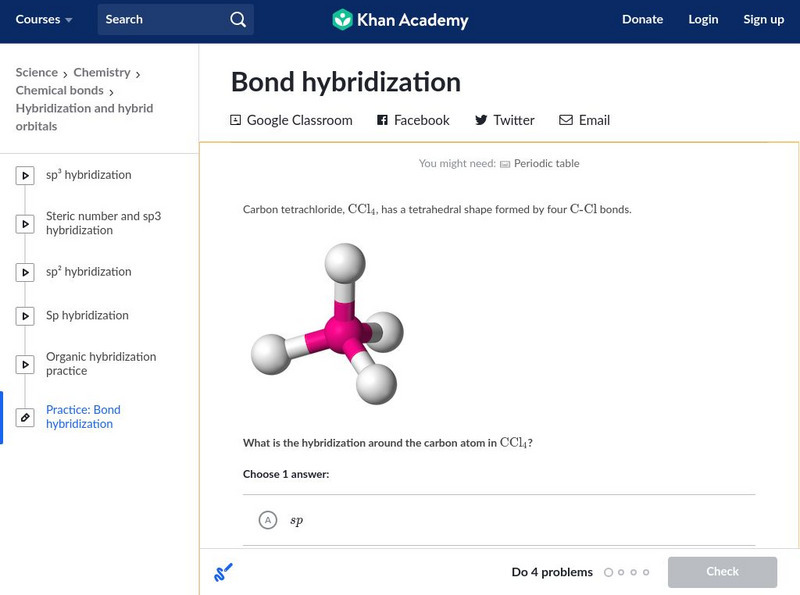
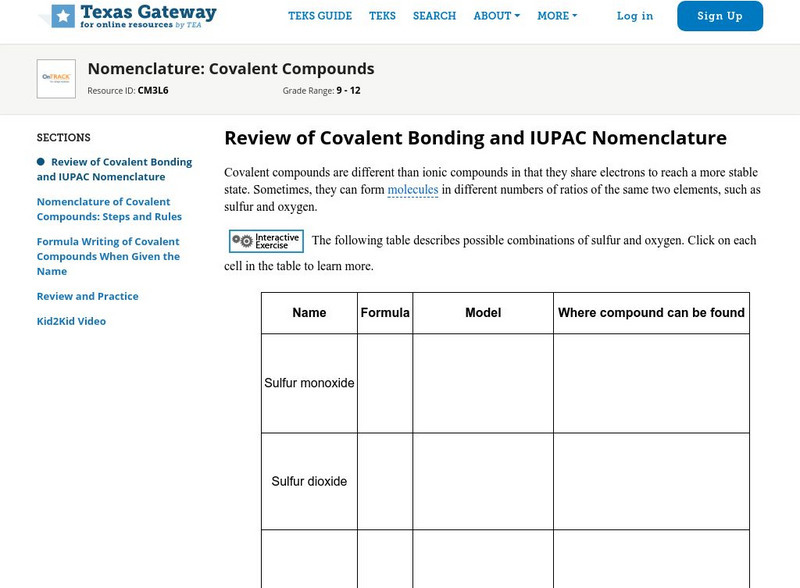
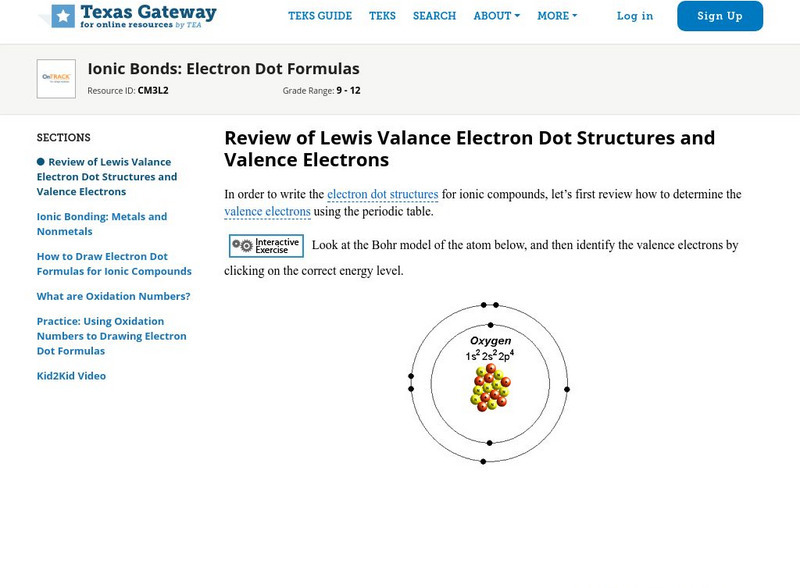



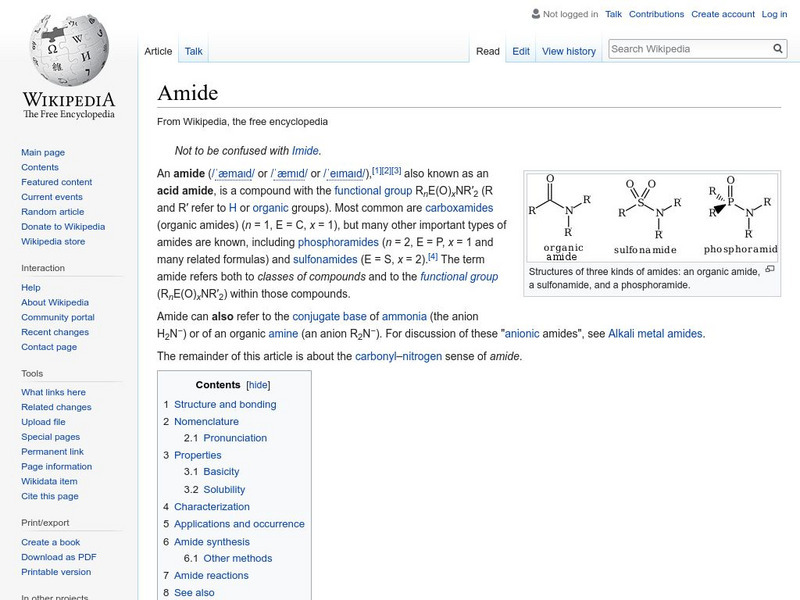




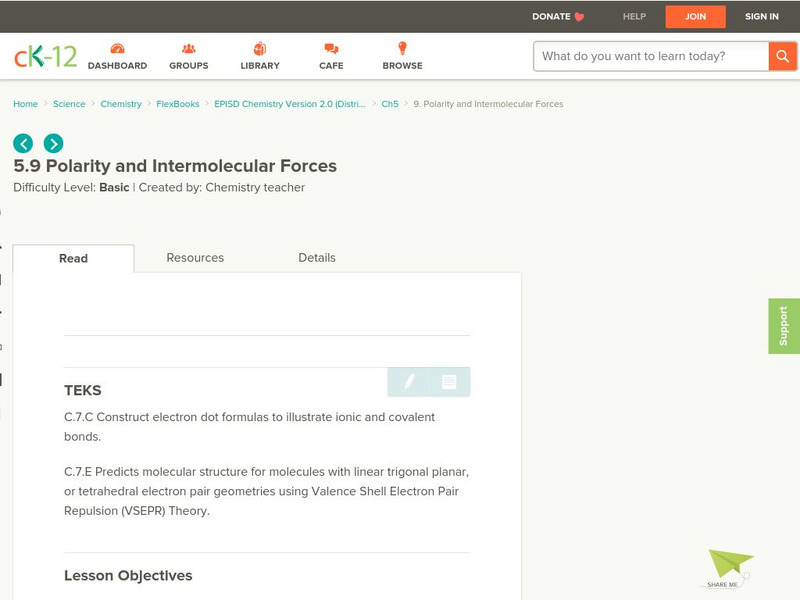

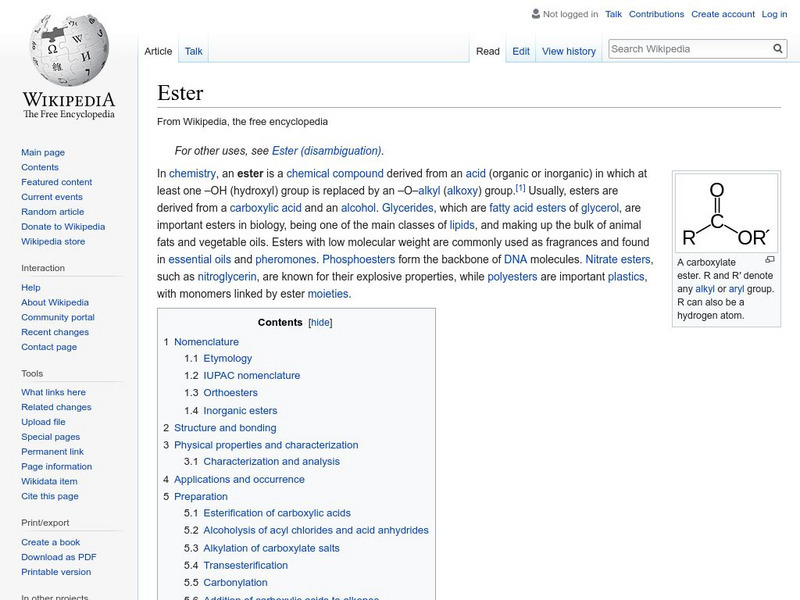
![Educaplus: Enlace Ionico [In Spanish] Activity Educaplus: Enlace Ionico [In Spanish] Activity](https://content.lessonplanet.com/knovation/original/371949-76073a684ee4c0d8b8f98ca59436f253.jpg?1661809839)

